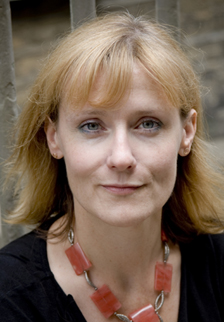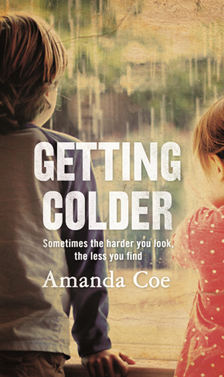Sitting tight
by Amanda CoePublication week, and surfing the exhilarated, semi-anxious state of having a book launched into the world. We cracked a bottle – okay, more than one – across the bows of Getting Colder on Monday… marking the beginning of the uncertain voyage any book takes. In my other job, as a screenwriter, seeing your work go out is a very different experience. The first transmission of a TV piece is a contained flare of interest that quickly dissipates. The reception of a book though, swells, and if you’re lucky, eddies outwards. Reviews apart, you never know when you might get a response from a new reader. It sticks around. Hopefully.
Noting this difference in reception has also brought home to me – no less nervously – the unique way any reader controls the experience of a novel. It’s extremely rare, and probably undesirable, to read a book at one sitting. Instead, a novel cohabits with its reader. We pick it up and put it down according to will [boredom / fatigue / disgust] or circumstances beyond our control [bus has reached its stop / text alert trills / partner is desperate to put out the light]. Hard-won artistic decisions about the build and release of tension are apt to be blown out of the water by an unignorably full bladder. By contrast, watching a film in a cinema, we are entirely in thrall to the director’s decisions about pacing and length. You can always leave, of course. But while I’ve become fairly ruthless about abandoning books that aren’t working for me, I can only remember walking out of one film in my whole life. [Mask of Zorro. On my honeymoon. That wasn’t the reason for leaving.]
The truth is, if a story works in any form, all bets are off. We submit to the director, read on into the night or past the stop, stay up for just one more episode.”
At home, we channel hop, and with a DVD, there’s the ready option of hitting the pause button. In fact it strikes me that one of the reasons for the popularity of the box set might be its ability to mimic, not just in expansiveness of narrative time or exploration of character, the same choices we can exercise over reading a novel. We all like to feel in control. But also, being human and contradictory, we enjoy its opposite. The truth is, if a story works in any form, all bets are off. We submit to the director, read on into the night or past the stop, stay up for just one more episode, hand over the remote. Confident the captain and crew know their jobs, we accept the complimentary drink [if offered] and settle back into the journey. Successful stories, made of character and event and the intangibly enticing questions arising from them, carry us happily away from home. This ship’s unsinkable. Well, lets hope, anyway.
 Amanda Coe’s screenwriting credits include Shameless, Margot, about Margot Fonteyn and Nureyev, and As If, an acclaimed teen drama series. In 2013 she won a BAFTA for the BBC Four adaptation of John Braine’s Room at the Top, and she is currently working on a pilot for HBO. Her first novel, What They Do in the Dark, was published by Virago in 2011. Her latest, Getting Colder, also from Virago, is a savagely sharp survey of decades of family havoc wrought by a washed-up angry playwright. Read more.
Amanda Coe’s screenwriting credits include Shameless, Margot, about Margot Fonteyn and Nureyev, and As If, an acclaimed teen drama series. In 2013 she won a BAFTA for the BBC Four adaptation of John Braine’s Room at the Top, and she is currently working on a pilot for HBO. Her first novel, What They Do in the Dark, was published by Virago in 2011. Her latest, Getting Colder, also from Virago, is a savagely sharp survey of decades of family havoc wrought by a washed-up angry playwright. Read more.
@amandjacoe
Author portrait © Dorothee Gillessen
“The brilliant What They Do in the Dark was always going to be a hard act to follow, but Getting Colder has once again proved that Coe’s a fearless writer, not afraid to linger in the murky, messy corners of her characters’ lives.”
Lucy Scholes, the Independent


